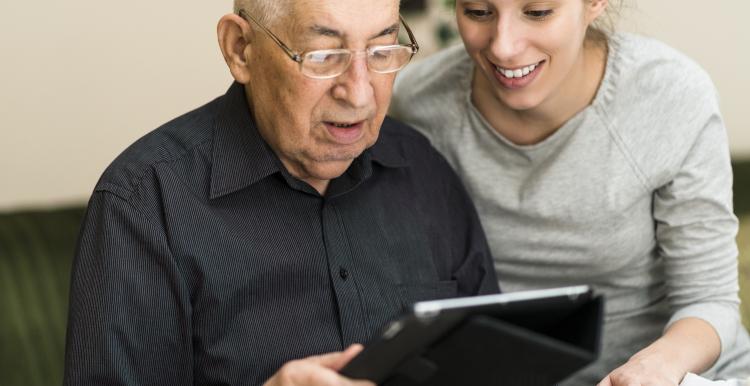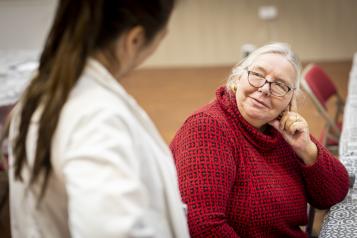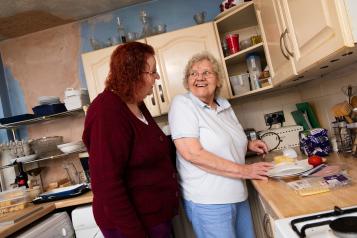People with long-term health conditions most likely to avoid care services due to COVID-19

On World Patient Safety Day 2020, we have joined forces with the Care Quality Commission (CQC) to call for more feedback from people with existing long-term conditions on their care throughout the COVID-19 crisis.
Feedback is crucial for creating safe conditions for people in care and particularly for people with long-term conditions, their friends, family and carers who are often in contact with the health and care system. By giving feedback this can help to identify unsafe conditions and practices so that these can be improved.
This is particularly important since our research has shown that those with a long-term condition were highly likely to avoid health and social care services due to risk factors around COVID-19 – 51% of people with a long- term condition avoid health and care services compared to 29% of the average population.
What have people with long-term conditions said?
The research commissioned by CQC and Healthwatch England for the Because We All Care campaign also showed that:
- 81% of people with long-term health conditions report issues when trying to access health and social care services, such as longer waiting times. This is 17% higher than the general population.
- 52% of patients with long-term health conditions did not want to put additional pressure on Health and Social Care services by giving feedback.
- 32% of people with a long-term health condition got more support from family and friends over the course of the COVID-19 pandemic.
Appeal for more people to come forward
Commenting on the findings, Kate Terroni, Chief Inspector of Adult Social Care at CQC said:
“We are listening to people with long-term health conditions and their families to help us improve the quality of care. It is only by hearing the voices of people who use services that we can understand what changes need to be made and how to support those services to improve and ensure people receive the care they need during this crisis. By giving feedback on your care you can make a real difference not just to your own care, but in helping us to improve the system for everyone.”
Explaining why peoples views are so important, our National Director, Imelda Redmond CBE, said:
“It is a cruel irony that people with long-term health conditions who need our health services the most avoided seeking treatment during the pandemic, and often encountered problems when they did. By utilising the expertise of local Healthwatch and the relationships they have with their communities, we will be able to better understand the reasons behind these issues and other challenges people have faced.
“We will then use this learning to help health and social care leaders understand which changes and additional support measures may help, both now and through any potential future developments. Around 15 million people in England are living with a long-term health condition and they are likely to be particularly vulnerable to COVID-19, so this is vital work and it is essential that people come forward to share their stories with us so we can help drive improvements.”
Nicola Clarke, who works for Healthwatch Lincolnshire, explains why she wants residents in her area to come forward:
“We recognise sometimes the difficulties for people who need to raise an issue or concern but what we do know is, that for those people we talk to, having the opportunity to speak up can and does change their outcome in a positive way.
"We want to give our Lincolnshire residents the chance to share their stories as part of this national campaign and are therefore looking for people with long term conditions to come forward, particularly anyone who has had a positive experience of raising an issue with health and social care services."


